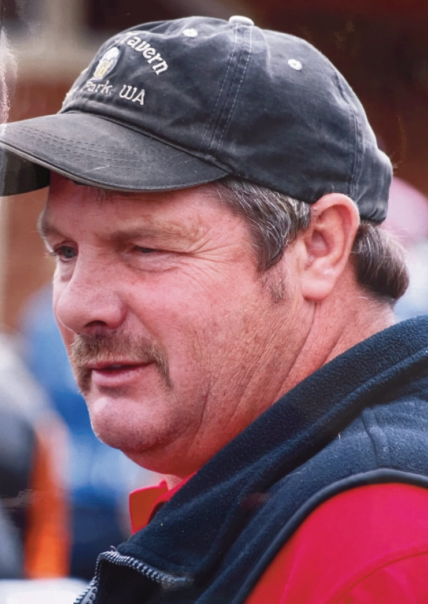Coast Chronicles: The tale of two Hilaries
Published 9:14 am Monday, October 3, 2022

- Hilary Mantel, Brit and historical novelist, succumbed to a heart attack after a life of literary brilliance.
It’s not what you’ve been given,
Trending
but what you do with what you’ve got.
—Song lyrics
Aging in place, on earth
As we get older we begin to think more about death and that makes us begin to think more about life. I think if you make it into your ‘70s most likely you’re not going to have a one-fell-swoop kind of death — not a sudden onset anything. It’s more likely going to be an accumulation of tiny cuts: a bum knee there, a little high blood pressure here, a skin problem, high cholesterol, a sneaky cancer.
In the past couple weeks there were two deaths — of women I didn’t even know — that have stuck with me and got me thinking. Why? Because they were content to be themselves and so full of the passion that exemplifies the best of humankind.
Not to put too fine a point on it, but many of us on the Peninsula are in this boat. First we lose our parents; then good friends, partners, ex-lovers, husbands and wives disappear into the void. Once the shock is over, though it remains a sad thing, we rebuild ourselves, think fondly, shed tears, remember, and go on as best we can.
In the past couple weeks there were two deaths — of women I didn’t even know — that have stuck with me and got me thinking. Why? Because they were content to be themselves and so full of the passion that exemplifies the best of humankind. They strove to the Nth degree for something — something perhaps unattainable yet something so many of us want: to be the best at whoever we are and to be at peace with that self.
The first Hilaree
“Acclaimed ski mountaineer Hilaree Nelson died this week in Nepal. Superlatives can’t capture her physical prowess and accomplishments,” wrote Gregory Scruggs, in the Seattle Times. Nelson, a Seattle native born in 1972, was the first woman to summit both Mt. Everest and Lhotse in a 24-hour period. That in itself seems superhuman. But for Hilaree, summitting was not enough — she then wanted to strap on her skis and whoosh down the worlds’ steepest and highest mountains. (She learned to ski at Stevens Pass.) As she said, “It’s hard to summit a 28,000-foot mountain, let alone get your skis up there, have the right conditions and be able to make the ascent.” But that’s the profession she chose.
She was known for her drive and, as her climbing companions put it, “for her heroic strengths — not only in the mountains, but in her community, and her family. She was an endurance monster, but she was also a kind soul, and often that got obscured by her drive.” She was a mother of two teenage sons and wanted to prove that mothering did not cancel out other passions. She did not want to be “just the first woman” to accomplish these feats. She said, “That’s over now.” Women or men — no matter — she just wanted to be the best. She broke trail on an unclimbed route for a Mount Vinson summit in 2020 as North Face athletic team captain; her predecessor was renowned climber Conrad Anker.
Last Monday, she and her climbing and life partner Jim Morrison summitted Manaslu, the world’s eighth highest mountain, put on their skis and started off. He went first; she followed but started a small avalanche that swept her off the other side of the mountain. They found her body last Wednesday, badly damaged. It’s that old cliché, she died doing what she loved, but…what a sacrifice. She was 49.
The second Hilary
Hilary Mantel, a Brit, was a lawyer, then an unsatisfied lawyer, then a wife, then a failed wife, then a writer, then a failed writer, then a wife again, then…well, here’s just a tiny bit of her story. She was born into a Roman Catholic family and grew up in Derbyshire. When she was seven her mother’s lover, Jack Mantel, moved into her mother’s bed and her father moved into the spare room. Four years later when the local gossip became too lethal, the family — minus dad — moved away. Hilary took Mantel’s name as hers and never saw her real father again. She graduated with a Jurisprudence degree in 1973 and married Gerald McEwen. She left a lawyering job behind, divorced McEwen in 1981, then remarried him in 1982. Along the way she began writing and McEwen gave up his geology profession to manage her career.
She received many publishing rejections in the beginning, but she persisted. At last she found the niche she’ll be most remembered for: a massive three novel historical fictionalization tracing the life of Thomas Cromwell: “Wolf Hall,” “Bring Up the Bodies,” and “The Mirror & the Light.”
Many thought nothing further could possibly be written about Cromwell, a lawyer, statesman and the strategic genius behind the machinations of Henry VIII. But Hilary dug deep, fell into decades of research, and recast him in history, unearthing his genius for persuasion, for creating the structures of a modern governmental administration. In the process she won two Booker Prizes, the highest literary award in England. She’s been called a “massive talent.” Her sentences are magnificent.
She’s an original thinker, a writer of enormous skill and she’s unexpectedly funny, with a wicked and wacky take on the world. When asked what she would do with the Booker Prize funds, this prim-looking straight-laced Brit said she’d spend it on “sex, drugs and rock and roll.” She even has a few curt words about my current profession, “I love news papers. I admire the indefatigable columnists, and yet I take a malicious pleasure in watching them struggle to get 800 words out of two bald facts and one unoriginal opinion.”
She suffered through decades of undiagnosed endometriosis, as unfortunately many women do; and then the drugs she was given caused her to gain voluminous amounts of weight. She was always in pain and uncomfortable. Yet her talent won out. She died September 22 in Devon, England several days after a heart attack at 70. She had renounced her faith earlier in life; though in her last years she thought she might come back to believing — in the Church of England, the church that Cromwell reformed. (For more about this brilliant woman: en.wikipedia.org/wiki/Hilary_Mantel)
Two modes, two Hilaries
At least as exemplified by these Hilary-lives, there may be a range of these two modes for living: extreme-to-the-max and quiet steady accomplishment. And it’s not so much the content of the choice but the manner of manifesting it. A writer’s life is more interior, thoughtful, contemplative; a ski mountaineer is ballsy, brash, audacious. (Though certainly there have been many writers like Edna St. Vincent Millay, who wrote: “My candle burns at both ends;/ It will not last the night;/ But ah, my foes, and oh, my friends — It gives a lovely light!”) Sitting at a desk relentlessly crafting sentences has a different passionate fervor than pushing off an icy near-vertical slope on the edge of a death-defying adventure.
A good friend and I were talking about this when she shocked me by saying, “I would go to Mars. Imagine watching the earth recede into the vastness of space. Everything would be new!” While another friend said, “But why would you leave the beauty of this earth?” And another said, “What would I do for all that time in the spaceship on the way to Mars? If I could be useful maybe I’d consider it.” All of us choosing a different perspective on this passion-mode spectrum.
Which way have you chosen to live your life? (Some of us have that luxury, while others must pay coyotes just to be able to work and support their families.) There’s no right answer, of course, and it’s a choice that changes at different times in a life. But it should be our goal that each and every human is able to make their own decision about how to live, as these two glorious Hilaries did. In my ideal world every human — and every creature — is able to make this choice: exactly how to be its/his/her best self.









